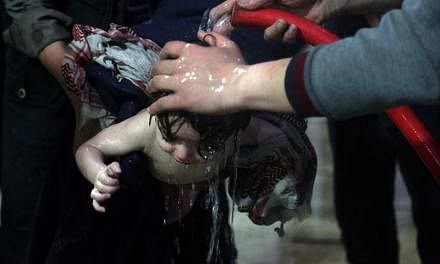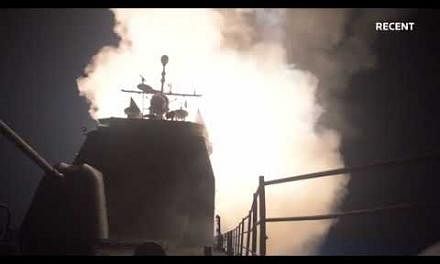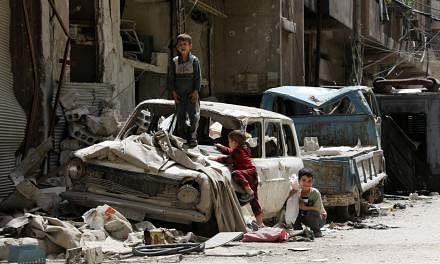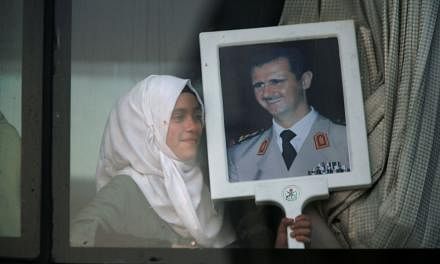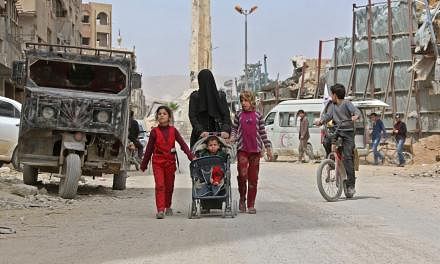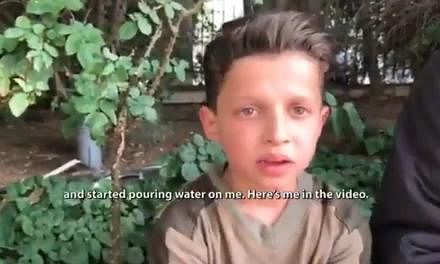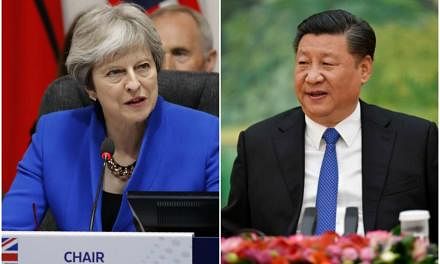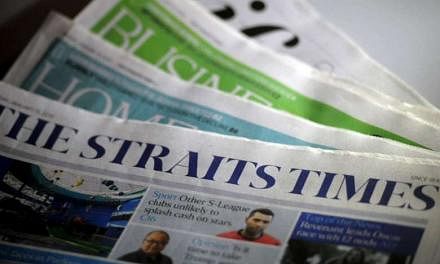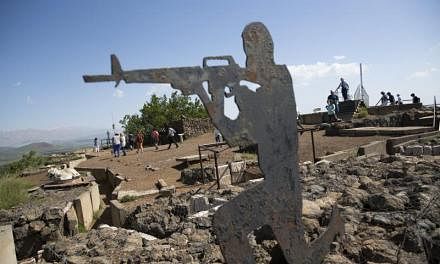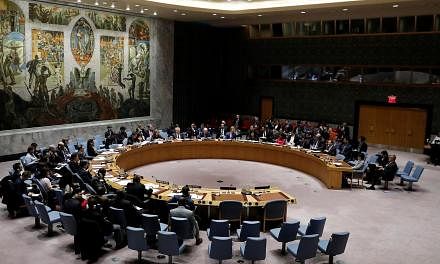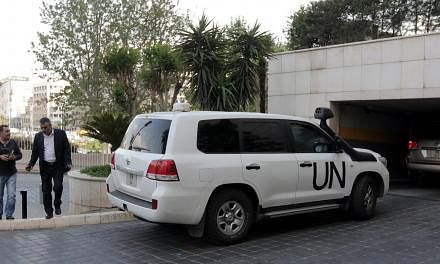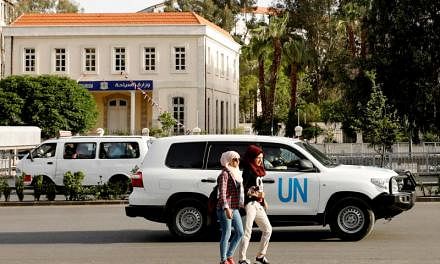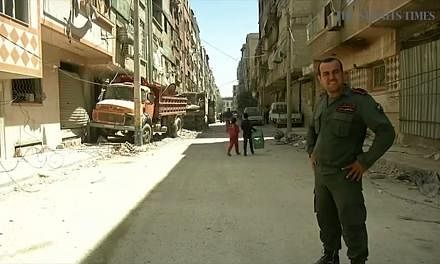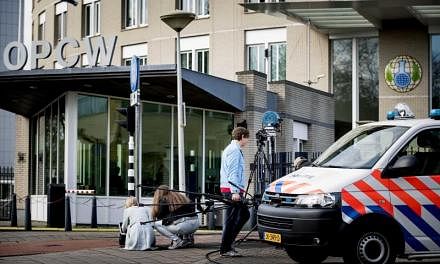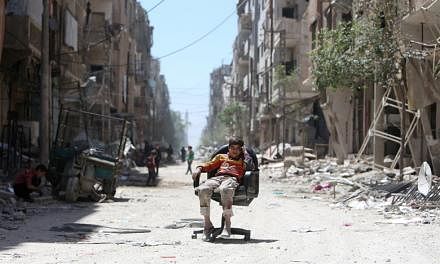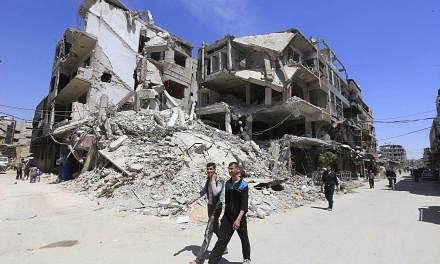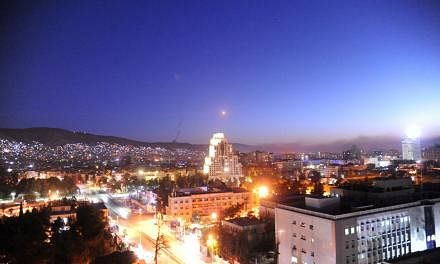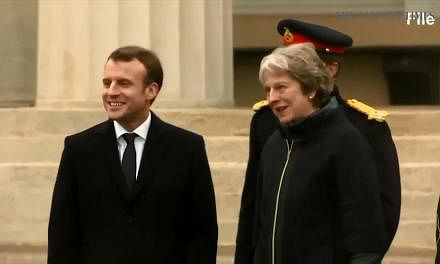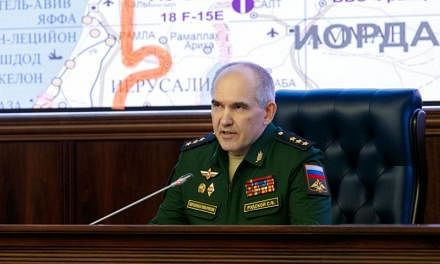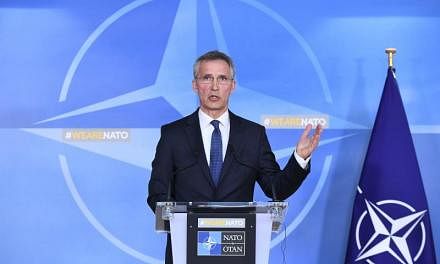WASHINGTON (NYTIMES) - In sending missiles and bombs at Syria, President Donald Trump hit more targets and used more firepower than he did in a similar military strike last year.
But in the end, he opted for what was still a restrained operation that was evidently calculated to avoid provoking Syria's patrons in Russia and Iran into retaliating.
The United States and its European allies chose three targets instead of the single air base hit last year and used twice as many weapons.
Still, US officials said the attack was intended as a proportional strike aimed specifically at Syria's chemical weapons facilities rather than a broader set of targets and was a one-time, one-night assault to punish Damascus for a suspected gas attack last weekend.
In the days before the strike, Defence Secretary James Mattis cautioned against a quick assault without a more thought-through strategy.
He expressed concern about the potential for escalating the conflict by drawing Russia and Iran into a deeper confrontation with the United States in a country where all three have forces on the ground.
With Russian and Iranian forces supporting the government of President Bashar al-Assad, the potential for miscues weighed on military planners.
For all of Mr Trump's tough language this week, the variant he chose made no apparent effort to damage Mr Assad's broader war machine or his government's command and control of its forces beyond its chemical weapons.
The one-night burst of ordnance appears unlikely to change the overall balance of forces in Syria seven years into its bloody civil war.
But the President hoped it would be enough to deter Mr Assad from using chemical weapons again without being so damaging as to compel Russia and Iran to intervene.
General Mattis told reporters at the Pentagon on Friday night that the strike was devised to minimise the chances of accidentally killing Russian soldiers and limit the damage to facilities directly associated with Syria's chemical weapons arsenal.
While he called it a "heavy strike", he said, "Right now this is a one-time shot, and I believe it has sent a very strong message to dissuade him, to deter him from doing it again."
Analysts said the limited nature of the strike probably would not compel Russia or Iran into taking significant action.
"The Russian and Iranian responses will likely be shrill rhetorically, but direct responses are unlikely," said Mr Dennis Ross, a long-time Middle East expert who has worked for several presidents and is now at the Washington Institute for Near East Policy.
"The targets struck were tied to CW infrastructure," he added, meaning chemical weapons, "and not the bases where the Russians and Iranians are."
Mr Ross said it was possible that Iran could respond indirectly by using Shi'ite militias against US forces in Iraq or possibly Syria, but even that, he said, was "less likely because of the limited nature of this attack."
In the hours and days leading up to the strike, the potential consequences consumed officials meeting at the Pentagon, in the White House Situation Room and at Fort Meade, Maryland, where the US Cyber Command is situated.
US officials doubted that Russia or Iran would counterattack directly against US forces in the region.
But they focused on the prospect of an asymmetric retaliation that would rely on Moscow's and Teheran's formidable cyber abilities - one that would be harder for Washington to prepare for or defend against.
There was no immediate intelligence that such an attack was being planned. It was also uncertain how much either Russia or Iran would take the risk of widening the crisis in Syria with a cyber counterattack on the West.
But US officials said they were girding to respond to a range of possible acts of retaliation - including an online strike that could block communications to US troops in combat zones.
The heated language in the days before the strike focused as much, if not more, on Russia than on Syria, underscoring the dangers of a spiral into a more dangerous confrontation between the two former Cold War adversaries.
Hours before the strikes began, Ms Nikki Haley, the US ambassador to the United Nations, engaged in a scathing exchange with her Russian counterpart at a Friday meeting of the Security Council.
The Russian ambassador, Mr Vasily Nebenzya, accused the United States and its allies of reckless war-mongering.
Mr Nebenzya said that there was no confirmed evidence that chemical weapons had been used in Douma and that the United States and its allies had "demonstrated they have no interest in an investigation".
Mr Trump's threats of a strike on Mr Assad's forces, Mr Nebenzya said, were "unworthy of a permanent member of the Security Council".
Ms Haley said she was incredulous at Mr Nebenzya's defence of the Syrian government and his overall portrayal of events.
"I'm in awe of how you say what you say with a straight face," she told him.
For all that, Russia loomed large in the discussions back in Washington about how to proceed.
During a US military video conference call, several officials expressed concern about the possible Russian reaction to a strike on Syrian facilities, particularly in light of Moscow's threats to shoot down incoming missiles.
During the call, military officials said that it was imperative to take steps to protect US navy destroyers from Russian counterattacks.
But a potential online strike loomed as a possibility - and a way for Russia and Iran to sidestep a direct confrontation with the US military.
Just weeks ago, the Department of Homeland Security identified Russia as the source of malware "implants" in the US electric grid and released samples of code to utilities to help them clean out their systems.
The warning accused Russia of mounting a series of intrusions against US and European nuclear power plants and water and electric systems, in what analysts interpreted as a move to test Moscow's capacity.
Iran hit US banks with a major denial of service attack nearly six years ago, and tried - unsuccessfully - to manipulate a dam in Westchester County, New York.
Iran is among the most sophisticated mid-size powers in using cyber weapons, skills that the country has invested in heavily since the United States and Israel conducted a crippling online attack on its nuclear enrichment sites.
As he prepared the military for retaliation, Gen Mattis also warned of a potential propaganda counterattack by Syria, Russia and Iran after a Western strike.
Defence Department officials underscored the need to show the world convincing evidence that Mr Assad's government had indeed initiated a chemical attack in Douma.
Russian troops and mercenaries are deployed to Syria, and Iranian forces and militias are also in the country, and could retaliate against the thousands of US troops in Syria and Iraq.
US personnel in Irbil, a Kurdish city in northern Iraq, were readying for a potential Iranian attack on their forces there, according to a US official.
With days of warning that Mr Trump planned to take action, Syria moved some of its aircraft to a Russian base in hopes of deterring Americans from attacking there - and, in turn, igniting aggression between the two Cold War powers.
Mr Trump made sure not to target that base on Friday, averting the chance of hitting Russian targets, but also sparing the Syrian air force.
Senator Lindsey Graham, A South Carolina Republican, said hours before the strike that he was concerned that the military leadership was being too cautious.
"I'm worried whether or not we have the right generals with the right mindset," he said on Fox News Radio.
"If our military leaders are listening to Putin and we back off because Putin threatens to retaliate, that is a disaster for us throughout the world," he added. "You can't let one dictator tell you what to do about another who has crossed two red lines."

